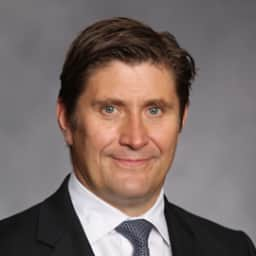.Says govt. must ensure right pricing ,regulatory regimes to make investment attractive and affordable for consumers
As the global energy transition continues to get traction, the Chief Executive Officer (CEO) of Seplat Energy Plc, Roger Brown has retreated that the net investment needed to achieve the global net zero target by 2050 is about $3 trillion
Brown projects $3.5 trillion, around 1.3 per cent of the annual global Gross Domestic Product, is needed to finance Nigeria’s energy transition every year.
According to him delivering universal access to energy across Africa will deliver huge social and economic benefits, But it will only be attractive if governments can create the right pricing and regulatory regimes to make it both attractive to invest, in and affordable for consumers.
Brown stated this during his presentation on Monday at the Society of Petroleum Engineers (SPE) 2023 Nigeria Annual International Conference and Exhibition (NAICE).
His presentation centres around the 2023 NAICE theme, ‘Balancing Energy Accessibility, Affordability and Sustainability: Strategic Options for Africa.’
Nigeria’s current position in the energy triangle is between access to energy (energy security) and affordability and must move to a point where it is sustainable, the Seplat CEO says.
The financing of Africa’s energy transition begins with a focus on enabling the entire value chain, from wells to payment, to improve accessibility and energy security in Africa, Brown tells conference attendees.
The Seplat CEO outlines other action points, including creating resilient and efficient power grids and an attractive regulatory and pricing regime to encourage investment and innovation.
“Recognise that gas has a place as a transition fuel, and Africa has a right to use its resources,” Brown remarks.
Brown tells conference attendees that investors recognise the need to decarbonise and “shift investment away from fossil fuels and towards cleaner energy.”
However, Brown points out that the global climate realities and Africa’s realities need to be balanced.
“Africa’s reality is that it has hardly contributed anything towards CO2 and global warming, and that is because most of its population lack access to affordable and reliable energy,” Brown says.
He warns that any hesitation to fund Africa’s energy transition, making gas more available to Africans, will lead to a financing trap.
The financing trap, Brown says, starts from “high cost of capital which leads to low investment in low-carbon technologies, which in turn leads to low reduction in carbon emissions.”
Then to “worse climate impacts, to low production, high unemployment and high instability, which leads to underdeveloped domestic markets and high domestic risks.”
Such domestic risks eventually lead to “high-risk premiums, which bring about the high cost of capital.”
Brown says that to strike the right balance, Nigeria must move away from reliance on diesel/ PMS generators and move on to gas as the transition solution.
The 2023 NAICE has over 2,000 registrants, including petroleum engineers, students, regulators and energy industry players in attendance.
The conference will run from July 31 through August 2, 2023, in Lagos state.

























